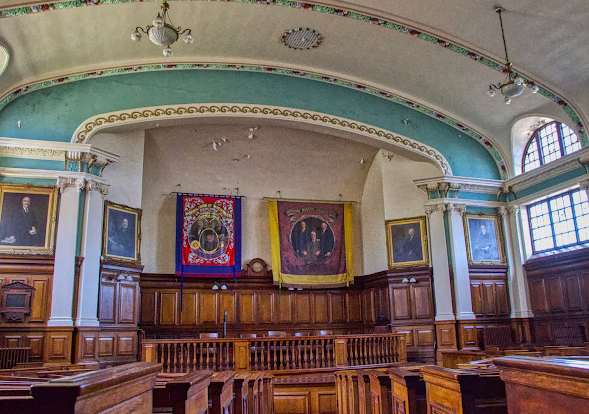Durham University Chancellor Fiona Hill spoke of her pride at seeing historic links between the university and the Durham Miners’ Association renewed.
The renewed partnership was celebrated at Energy Days, a two-day conference held last week at Redhills (the former Durham Miners Hall). This event explored the potential of clean energy in the former Durham coalfield.
Importantly, Energy Days brought together scientists, academics, writers, artists, community leaders and schoolchildren in an interdisciplinary discussion over clean energy solutions for the region.
Binding the past to the present by using knowledge to shape future generations
“A partnership re-emerging between two of the greatest institutions here in Durham City”. These were the celebratory words of Dr Fiona Hill’s speech, preaching the importance of the bond between two of the city’s most historic institutions.
“Both the university and the Miner’s Hall had this aim of sharing knowledge and generating new ideas for the future. so what a great way for us to put that on a new footing for the future.
“It’s fantastic that the Miners’ Hall, having just been reopened, is already embarking on this kind of relationship with the university through the Energy Days event, but also that it is there for the whole community again.”
The ‘Pitman’s Parliament’ clean energy conference
Namely, the event was organised by the Durham Energy Institute, focusing on the opportunities presented by clean energy. This includes the potential to extract geothermal power from disused coal mines.
Indeed, Redhills is now powered almost entirely by ground-source heat pumps that tap into natural heat underground.
Significantly, Dr Hill saw its historic role as a centre for not only debate and decision-making, but education within the mining industry. The union with the university is vital in its commitment to strengthen community ties.

Via Google Maps
Dr Hill credits support from the Miners’ Association in shaping her education
Dr Hill recalled the invaluable impact the institution had on her studies, having “received a £100 bursary…in support of my education, and that helped make it all possible”.
She credits Redhills for their contributions in her academic journey, and is overjoyed that it is “continuing that long tradition of giving back to the local community”. She believes this power is something that can inspire future generations, and education is at the root of this belief.
Additionally, miners often invited lecturers from the university to share knowledge that could help them to improve their lives and communities.
Pupils from Prince Bishops Primary School, Bishop Auckland compete to see who can build the best wind turbine.
On becoming Durham University Chancellor
Dr Hill, born in Bishop Auckland, was shaped by her father’s work as a coalminer affected by the perils of deindustrialisation in the region. Her autobiography, entitled, “There Is Nothing For You Here”, echoed his advice to leave her home town to search for opportunities elsewhere.
Having become a specialist in Russian studies and a US national security adviser, she gained international attention as a key witness in Trump’s first impeachment in 2019.
Since becoming Chancellor, she has channelled her influence on the Russia-Ukraine conflict, as a prominent voice, and a UK government defence adviser.
Furthermore, she spoke about the importance of energy independence for national security. “We saw that with Putin’s invasion of Ukraine when oil and gas prices shot up and we all paid the price”.
Finally, she mentioned how “in the past, we could produce all the energy from coal that we needed and we could be largely energy independent”.
For more of the latest news, guides, gossip, and memes, follow The Durham Tab on Instagram, TikTok, and Facebook.
Featured image via Google Maps
